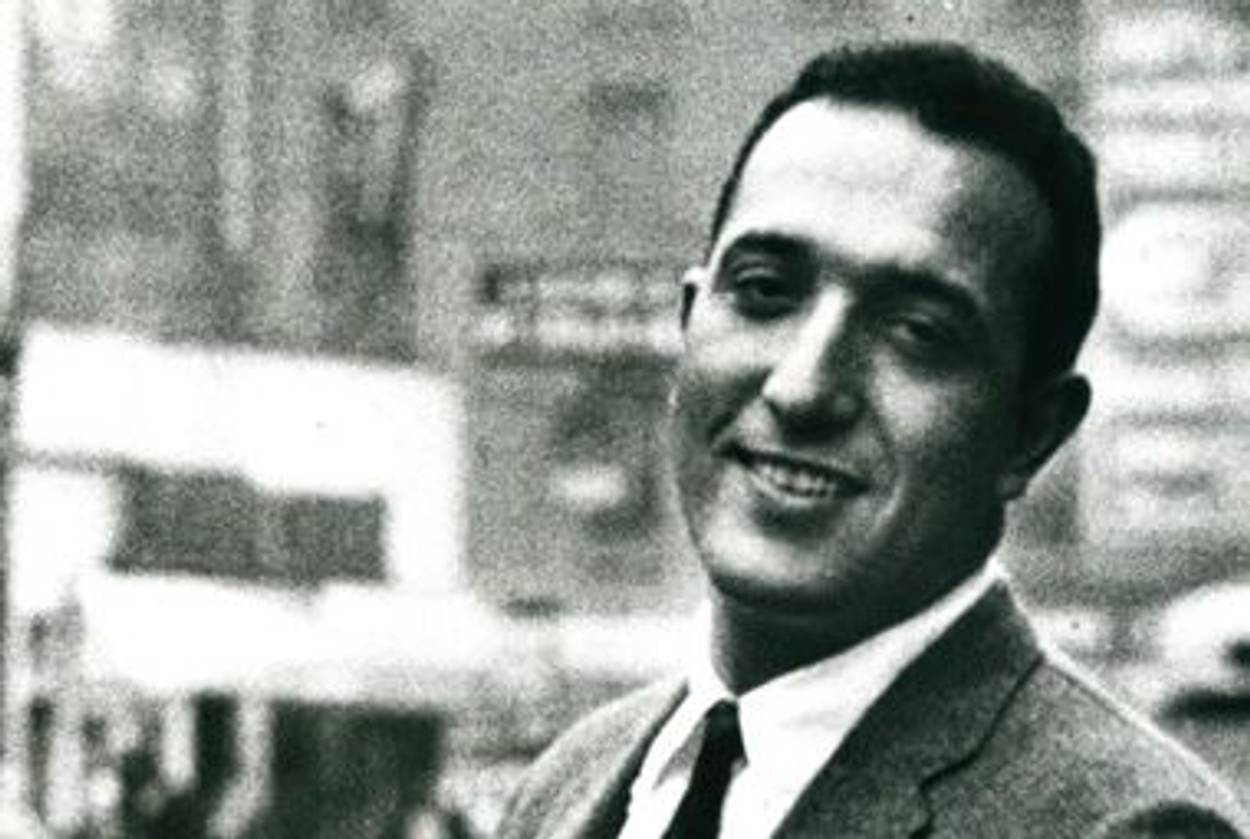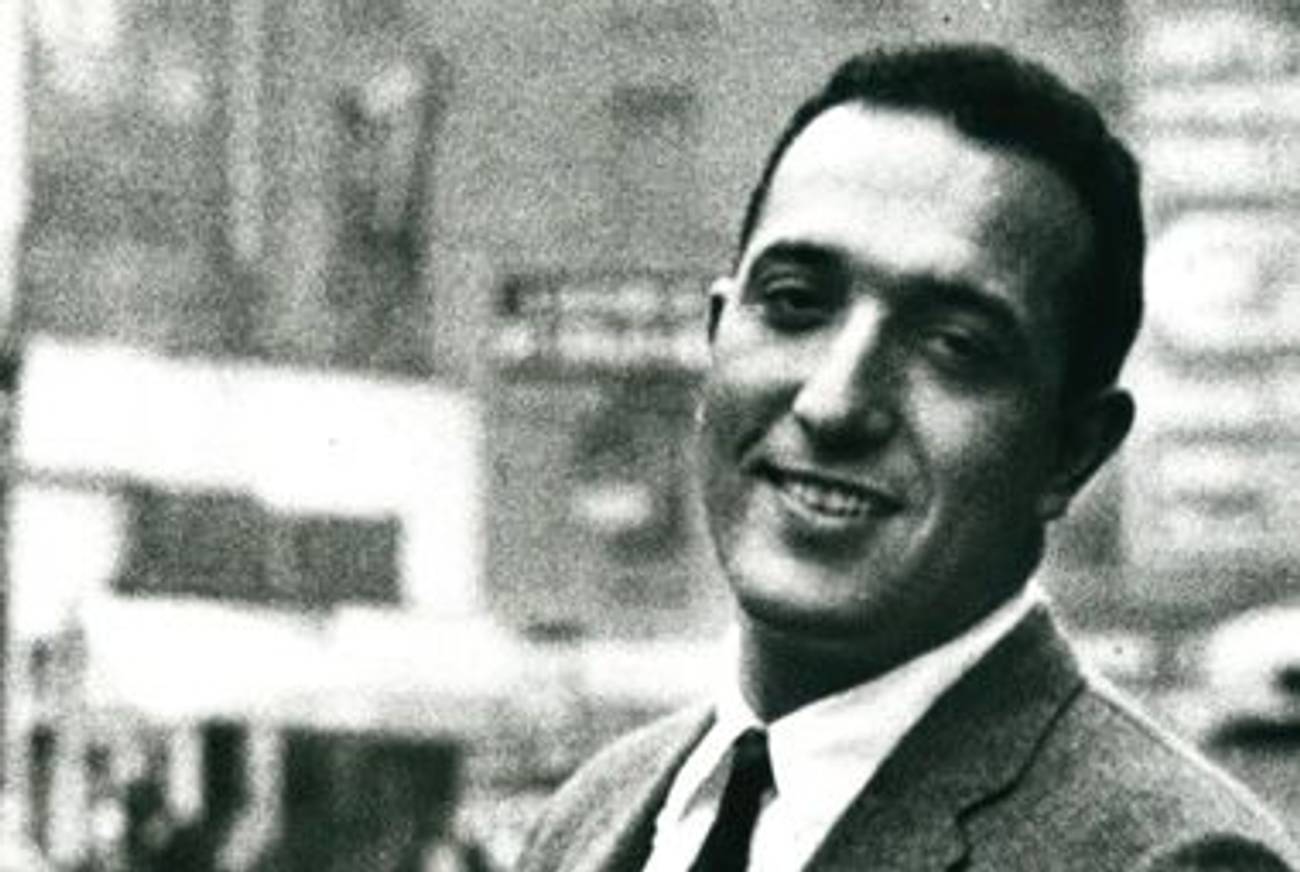Caracas Retreat
Junketing to South America in the late 1960s with Robert Lowell, a wealthy Venezuelan, and Alfred Kazin. An excerpt from the forthcoming memoir Lucky Bruce.




Out of nowhere, at the tail end of the sixties, I received an irresistible offer. Now and then, I’d hear about an academic being sent off by a foundation to be treated regally for a month or so at Lake Como. The closest I’d come to such an offer—and it wasn’t close—came from the agent Sam Gelfman, who had set up a program in which a Jewish author would spend two weeks living in the home of a wealthy Jewish couple in Beverly Hills.
“And do what?” I wanted to know.
“Nothing. Just be there. They want a Jewish writer in their home.”
“Do I get paid for this?”
“No. But you get several days off. And they have a wonderful chef.”
Gelfman was surprised when I said I wasn’t interested.
“I thought it would be right up your alley.”
“It’s not. Actually, it’s the worst offer I’ve ever received.”
“Fine,” he said, irritably. “I’ll call Dan Greenburg.”
The Caracas invitation was another story. It was not a Lake Como proposal, but it was close.
The idea was to put a group of American artists and intellectuals together with their Latin American counterparts in an attractive setting—the Hotel Avila in Caracas, Venezuela—and to see what came of it. Among those from the States were Lillian Hellman, Ada Louise Huxtable, Arthur Schlesinger Jr., Elizabeth Hardwick, Robert Lowell, and, as it’s put on the television variety shows, “a host of others.” I was part of a youthful contingent that included Claude Brown, Jules Feiffer, and Jack Richardson. My play Scuba Duba was having a strong run in Manhattan, which would have accounted for my being asked along. This was heady company for me. There was a suspicion that the enterprise had been sponsored by the CIA, in an effort to smoke out Cold War chicanery. If so, little profit would have come of it. During one session, a journalist from Brazil took exception to a position the United States had taken on an issue related to Central America. When asked, sharply, by Arthur Schlesinger, what the correct stance should have been, he said: “I’m not sure.”
That was pretty much the extent of the political intrigue.
We got off the ground with what I recall as a solemn processional to a local bordello—as if we were making a scholarly investigation of the local customs and mores. One of our number, an early deconstructionist, got caught up in the sybaritic merry-making and was not seen again for the duration of the conference. Claude Brown, author of the celebrated Manchild in the Promised Land, had a reputation as a jazz musician. For the delectation of the ladies, he sat at the piano and played “Heart and Soul.” Jack Richardson thought this an odd selection, considering the setting. Brown’s performance inspired an economist in our group to sit on the lap of a resident lady, thrust his tongue down her throat, then leap off and call his wife in Manhattan to beg her forgiveness for his transgression.
I chose the most attractive of the women. It was the only time in our long friendship that I was quicker on the draw than Richardson.
For some mysterious reason, I was encouraged to participate in a panel discussion having to do with the pros and cons of modern art. The critic Harold Rosenberg, a bearded and fierce-looking man, staked out his position, then whipped his head in my direction as if challenging me to find flaws in his thesis. I muttered something to the effect that Picasso’s Blue Period was “a nice little period.” Then, falling into the spirit of it, I whipped my head around fiercely to the next participant. There seemed to be quite a bit of that going on. Later, at dinner, I was seated beside Robert Lowell. He stared blankly ahead through several courses, then suddenly, in what seemed to be the conference style, did another head-whipper and mystifyingly berated me for personally holding down the Palestinians. The outburst threw me off stride. I tend to be wary of poets generally, afraid I’m going to be quizzed on layers of meaning in The Waste Land. Still, I pulled myself together and continued to enjoy the best steak I’d ever eaten.
The panel moved on to a discussion of literature, the critic Alfred Kazin holding forth at length on the wonders to be found in the novels of Herman Melville. I had met Kazin briefly at a book party, was aware of his eminence, and was quoted in a local newspaper as having said: “You’re Alfred Kazin … and you’re just standing there, like a normal person?” After the critic’s talk had wound down, something impelled me to get to my feet and say a word on behalf of “our young writers” who had not yet become Herman Melvilles.
“Surely,” I heard myself say, as if I were Disraeli, “we did not come all this way to inform our Latin American colleagues that Moby-Dick has merit.”
The comment drew an appreciative chuckle from Elizabeth Hardwick, thus making the moment a high point of my trip. It seemed only fair that I then list the names of the writers who were being slighted, but suddenly I could not think of who they were and took my seat with a certain awkwardness. Further along, I thought of Terry Southern and Thomas Pynchon, among others, but by that time the discussion had moved on to another topic, and I could only whisper their names to a puzzled Jules Feiffer.
There was a reception for our group, given by a wealthy Venezuelan whose home was filled with major works of contemporary art and sculpture that would have been recognizable to anyone who had only the most glancing acquaintance with modern art. Priceless sculptures were placed casually about the main hall. At one point, as I relaxed, with a drink in my hand, I was told, gently, that I was leaning on a Marisol. Drums could be heard in the hills above us, along with periodic gunshots. An unforgivably beautiful hostess said that disaffected groups were a stone’s throw away.
“When it suits them they will come,” she said (noirishly?) and with a shrug. “And they will take everything, including me.” Later in the evening, she said to me: “You’re deep, aren’t you. Perhaps too deep.” For all of that, I could not pry her away from Richardson. I imagine she felt he was just deep enough.
A poker game started up the next day beside the pool hotel. One advantage of being a poor player is that you can spot someone who is even worse at it than you are. Lillian Hellman, who was such a case, sat prominently at the head of the table, trying to fill inside straights and betting into hands that even a neophyte would recognize as unbeatable. But all the while, she took languorous puffs of a cigarette and gave off the picture of a consummate gambler, which she may have thought she was. It was a costly pose, but seemed worth it to her to be thought of as “one of the guys.”
Toward the end of our conference, she asked if I would like to spend a few weeks with her, touring the Caribbean and, I would imagine, gambling at the casinos. I thought it was brave of her to ask, and this was one of the few times in my life when I was at loose ends and didn’t have much else to do. But I turned down the offer. Though I wasn’t familiar with her plays (I was later to enjoy her books, particularly An Unfinished Woman), I was intimidated by her fame. Then, too, the prospect of strolling up to the desk of the San Juan Hilton with a woman three decades my senior was unappealing. (I don’t need to be told that the reverse situation would have been acceptable.) But finally, none of that mattered. (I’ve thought about this often.) She seemed depressed; I had a broken marriage and I was depressed enough for the two of us.
I took a stroll along the beach with the political columnist Max Lerner. He told me at length of his affair with the actress Elizabeth Taylor. (As a lover, in terms of chronology, I believe he was wedged between Eddie Fisher and Michael Wilding.) After tending to the actress in Los Angeles, during one of her illnesses, he returned to London, there to endure a lover’s agony over the romance. “I could not believe my situation,” he said to himself, as he rolled around in torment on his hotel bed. “There I was, a short, fat, aging Jewish intellectual, albeit a married one, having an affair with a woman who was—not even arguably—the most beautiful creature on the planet. What on earth was I to do?”
As we returned from our talk, we ran into Arthur Schlesinger. “You poor man,” the historian said to me, “Max has obviously been telling you his Liz Taylor story.”
This essay is excerpted from Lucky Bruce: A Literary Memoir by Bruce Jay Friedman. Copyright © Bruce Jay Friedman, 2011. Reprinted by permission of Biblioasis.
Bruce Jay Friedman (1930-2020), a novelist, short story writer, playwright, memoirist, and screenwriter, was the author of nineteen books, including Stern and Lucky Bruce: A Literary Memoir. His last collection of short fiction is The Peace Process. He died at age 90 on June 3, 2020.